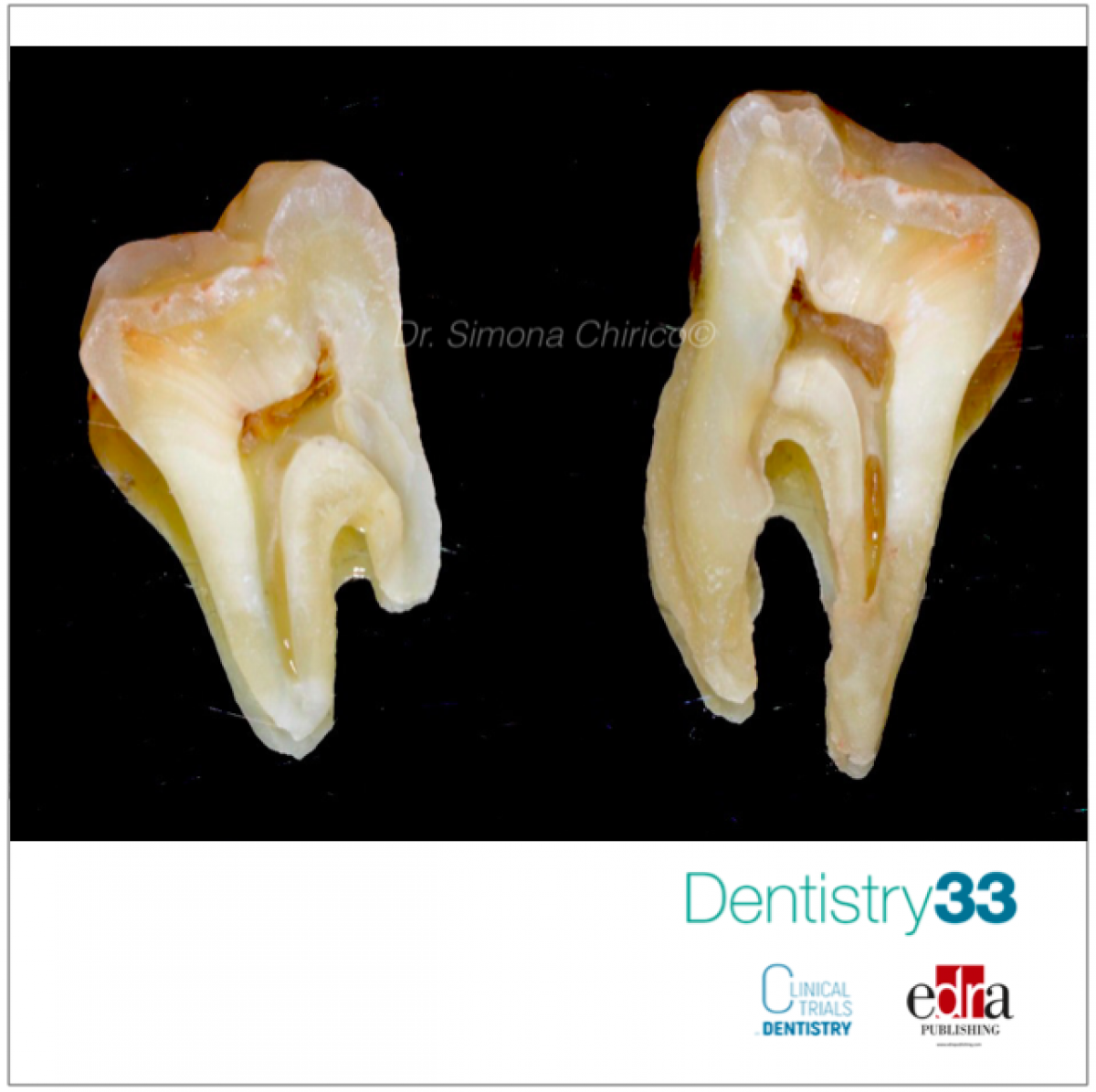
Endodontically treated tooth: can conservative access avoid fracture?
Simona Chirico
It is commonly known that a root canal-treated tooth (RCTT) has more possibilities to fracture than a tooth with vital pulp. Several factors must be considered to choose the best strategy to restore endodontically treated tooth. In order to provide retention and mechanical strength to coronal restoration, clinicians usually resort to intracanal posts, but nowadays new different materials and techniques have been recommended to improve the structural integrity of teeth and several studies have tried to identify the best method to increase the fracture resistance of an RCTT. However, there is no scientific evidence regarding the thickness of the remaining coronal structure and how it can influence on the survival of endodontically treated teeth. In fact tooth structure can be compromised by caries, previous restorations and even endodontic access. Good access cavity design is essential for quality endodontic treatment as the objective is to identify the root canal entrances. The present study compares the remaining dentin thickness (RDT) and fracture resistance of conventional and conservative access and biomechanical preparation in molars using cone-beam computed tomography (CBCT).
Materials&Methods
A total of 60 extracted human molars were selected, subjected to pre-CBCT scan at the pericervical region for the measurement of total dentin thickness and randomly divided into two groups:
-Group 1 Conventional endodontic cavity (n = 30): cavity preparation was done using Endo Access Bur and Endo-Z bur; working length was determined using 10 K-file; shaping was done with K3XF rotary Ni–Ti file system.
-Group 2 Conservative endodontic cavity (n = 30): cavity preparation was done using dental operating microscope DOM (×16) magnification with CK burs no. 2 and 5 preserving soffit and pericervical dentin; Working length was determined with 10 K-file similar to group 1; shaping was done with self-adjusting file (SAF) after apical preparation by 20 K-file.
Canals were then dried using paper points and obturated using gutta-percha using lateral condensation technique and were sealed coronally using nanohybrid composite. Samples were subjected to post-CBCT scan for the measurement of RDT at the cemento-enamal junction (CEJ). Fracture resistance was verified for both groups by applying the force of 1 mm/min using “universal testing machine”, and the data were analyzed using paired sample t-test and independent sample t-test.
Results
There is statistical significant difference (P < 0.001) in the RDT before and after the access cavity preparation at CEJ between the two groups. Even fracture resistance revealed a statistically significant difference between both the groups, with conservative group showing higher fracture resistance with a mean difference of 1662.07 N . The samples of conservative endodontic access cavity group show mesiodistal fracture while the samples of conventional endodontic access cavity group shows cuspal chipping pattern.
| Conclusion The dentin conservation afforded an increased resistance to fracture in conservative endodontic access cavity. |
For additional information: Evaluation of remaining dentin thickness and fracture resistance of conventional and conservative access and biomechanical preparation in molars using cone-beam computed tomography: An in vitrostudy
 Tag
Tag
 Read more
Read more
Digital Dentistry 19 November 2025
Increasing awareness of tooth fracture, both complete and incomplete, as a significant disease entity has led to improved diagnostic techniques.
Editorials 19 November 2025
As Ellen Simmons-Shamrell of the Class of 1977 wrote her annual check for the Michael D. Scotti, DMD Endowed Scholarship—established in memory of her late classmate—she reflected on how different...
Products 19 November 2025
Smartee Denti-Technology has unveiled the Smartee Digital Orthodontic Technology Exhibition Hall, a 1,200-square-meter space dedicated to showcasing the company’s innovations in clear aligner...
News 19 November 2025
Coupa, the global leader in AI-powered spend management, today announced a new collaboration with Specialized Dental Partners, a premier dental support organization (DSO) dedicated to enabling its...
News 19 November 2025
Breakthrough T1D has been selected as a 2025 Health Access Hero Award grant recipient by Sun Life U.S. and DentaQuest.










